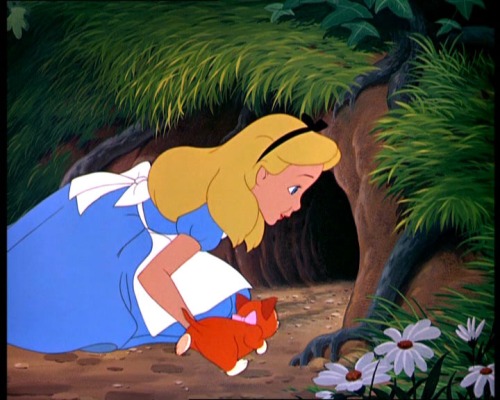
One newspaper article describes him as an "aw shucks charm" kind of "normal, regular guy" who nonetheless has a "fierce legal mind" that makes him a "tremendous writer and a tremendous thinker."
Apparently his mantra is not to rush to judgment. "Our primary objective is not to get it fast. It's to get it right. If I have to sacrifice a little speed for care, that's what I'll do."

It is with that kind of razor sharp deliberateness and care that we find him racing down the rabbit hole once again in FairWarnings Part Deux
"FairWarning attempts to re-litigate the validity of the '500 patent and to demonstrate that "the prior case was one of those relatively rare instances where the courts wholly failed to grasp the technical subject matter and issues in suit." (Doc. 45 at 5)"
What?
Dare you suggest that Clarence the Clown and Little Anthony fail to grasp technical subject matter?
Unbelievable.
It is a well known fact of "science" and even a "law" of Nature that any Mount Olympus whiz can ease on down that road to yonder coffee dispensary, pick out any java sipping geek, point to any "generic" computer, mumble any abstract concept, utter the magic words, "Apply it" and within weekend's time it is made so.
7 JUSTICE KENEDY: Well, let me put it this
8 way. If you describe that to a second-year college
9 class in engineering and said here's - here's my idea,
10 now you go home and you program over this weekend, my
11 guess is - my guess is that that would be fairly easy
12 to program.
13 MR. PHILIPS: I don't disagree with it,
14 Justice -
15 JUSTICE KENEDY: So the fact that the
16 computer is involved, it - it seems to me, is necessary
17 to make it work. But the - but the innovative aspect
18 is certainly not in the creation of the program to make
19 that work. All you're talking about is - if I can use
20 the word - an "idea."
...
8 JUSTICE BREYER: Why is that less abstract?
9 I mean, imagine King Tut siting in front of the pyramid
10 where all his gold is stored, and he has the habit of
11 giving chits away. Good for the gold, which is given at
12 the end of the day. And he hires a man with an abacus,
13 and when the abacus keeping track seems that he's given
14 away more gold than he is in storage, he says, stop.
15 You see?
16 Or my mother, who used to look at my
17 checkbook, when she saw that, in fact, I had written
18 more checks than I had in the account, she would grab
19 it. Stop. You see?
20 So what is it here that's less abstract that
21 the computer says, stop?
22 MR. PHILIPS: It is -
23 JUSTICE BREYER: How is that less abstract
24 than King Tut, if we had the same thing with a grain
25 elevator, if we had the same thing with a reservoir of ...
1 (Laughter.)
2 JUSTICE KENNEDY: - is - is whether or not
3 you could have patented that system, idea, process,
4 method, without attaching a computer program.
5 MR. PHILIPS: You cannot, absolutely cannot
6 do that with this system, because it is so complex and
7 so many interrelated parts.
8 JUSTICE KENNEDY: Suppose I thought - and,
9 again, it's just a thought because I don't have the
10 expertise - that any computer group of people sitting
11 around a coffee shop in Silicon Valley could do this
12 over a weekend. Suppose I thought that.
13 MR. PHILIPS: You mean wrote the code?
14 JUSTICE KENNEDY: Yes, right.
15 MR. PHILIPS: Well, that's absolutely -
16 I'm certain that's true.
17 JUSTICE KENNEDY: Well, then - then -
18 MR. PHILIPS: But that's true of almost all
19 software.
20 JUSTICE KENNEDY: Then why is the computer
21 program necessary to make the patent valid?

No comments:
Post a Comment